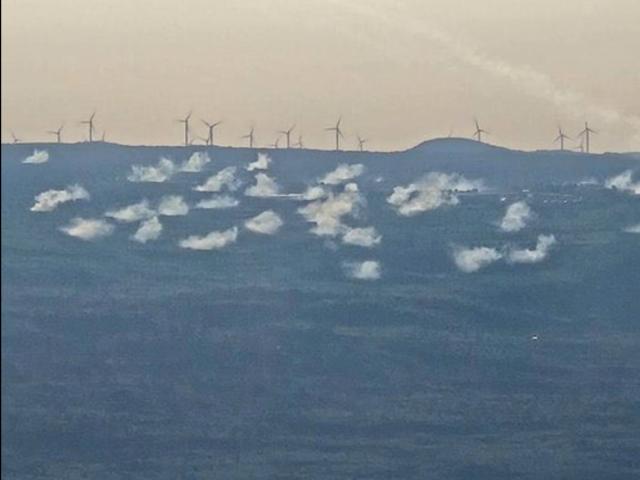Overnight, the confrontation between Israel and Hezbollah saw a significant escalation as Israeli aircraft conducted raids deep into Lebanese territory, and Hezbollah retaliated with one of the heaviest rocket barrages towards northern Israel since hostilities commenced last October.
Early Tuesday, Hezbollah launched 100 rockets in two volleys, primarily targeting the Golan Heights, as reported by the Israeli military. Remarkably, these attacks did not result in any reported injuries or damage.
As #Hezbollah rains down 100 rockets at northern #Israel this morning, while the int’l community stands idly by, I am again reminded of this timeless quote by Golda Meir:
— Arsen Ostrovsky 🎗️ (@Ostrov_A) March 12, 2024
“The world hates a Jew who hits back. The world loves us only when we are to be pitied.” pic.twitter.com/tQ9h8iunBU
This latest rocket salvo from Hezbollah came on the heels of Israeli airstrikes near Baalbek, a city in northeastern Lebanon that was retaliation for over 100 rockets being fired at Israel on Monday. These strikes, which targeted Hezbollah positions, represent the second instance of Israeli forces conducting operations deep within Lebanese borders within a fortnight. The operation resulted in at least one fatality and injured several individuals, as confirmed by Baalbek's governor, Bashir Khader.
The Israel Defense Forces (IDF) stated that the targets were facilities used by Hezbollah's "aerial forces," which were implicated in planning and executing various assaults against Israel. These airstrikes were described as retaliatory measures in response to Hezbollah's attacks aimed at the Golan Heights, marking an escalation in the almost daily confrontations between the two forces.
IDF: A short while ago, IDF fighter jets struck two Hezbollah terrorist organization sites in the area of the Beqaa Valley in Lebanon. The sites belong to Hezbollah’s aerial forces that planned and carried out various attacks against the State of Israel.
— Joe Truzman (@JoeTruzman) March 11, 2024
The strikes were in… pic.twitter.com/EzurS5PTpb
Since the attack by Hamas on southern Israel on October 7, which resulted in 1,200 casualties as per Israeli authorities, a cycle of retaliatory attacks between Israel and Hezbollah has ensued. Hezbollah's involvement was initially in solidarity with Hamas, aiming to divert Israeli military efforts from the Gaza Strip.
The conflict has exacted a heavy toll, with Israel's counteroffensive in Gaza resulting in thousands of deaths and displacement of hundreds of thousands within the Hamas-run enclave.
Hezbollah started firing rockets against Israel to stand with Gaza, now Hassan Nasrallah is turning Lebanon to Gaza. pic.twitter.com/sSSNZ3pXcz
— Jonathan Elkhoury- جوناثان الخوري (@Jonathan_Elk) March 11, 2024
Amidst escalating humanitarian concerns in Gaza, the European Commission President Ursula von der Leyen confirmed that a shipment of food aid departed Cyprus for northern Gaza following delays. This initiative by the charity Open Arms marks the first use of a maritime corridor intended to facilitate regular aid deliveries to the besieged Gaza Strip, addressing the looming catastrophe. Von der Leyen highlighted the importance of this maritime route in ensuring a continuous, regulated, and substantial flow of aid.
The broader Middle East has been engulfed in a wave of hostilities triggered by Israel's war on Hamas. Recently, Israel expanded its military targets beyond the traditional conflict zones along the southern Lebanese and northern Israeli borders. Strikes have been carried out in Ghaziyeh, Jadra, and near Baalbek, stoking fears of a wider conflict.
What is restraining #Hezbollah? @DavidADaoud joins @livenowfox to explain why Hezbollah is continuing to attack while Israel focuses on defeating #Hamas.
— FDD (@FDD) March 11, 2024
Watch 👇 pic.twitter.com/wheU5cG66M
The ongoing hostilities have displaced tens of thousands and heightened fears of a miscalculation leading to a more extensive conflict. Lebanese health officials report over 300 casualties in Lebanon, mostly among Hezbollah fighters, while Hezbollah's actions have resulted in the deaths of at least seven Israeli civilians and 11 soldiers since October.
Hezbollah, a dominant force in Lebanon, previously engaged in a month-long conflict with Israel in 2006. It is among the world's most heavily armed non-state actors.
Efforts led by the US to de-escalate the situation have yet to yield significant progress, as the conflict in Gaza persists. Hezbollah's leader, Hassan Nasrallah, has declared that hostilities against Israel will continue until a comprehensive ceasefire in Gaza is achieved.
🚨OVER 100 HEZBOLLAH ROCKETS FIRED INTO NORTHERN ISRAEL IN PAST TWO HOURS.
— Jewish News Syndicate (@JNS_org) March 12, 2024
▸The heavy barrage from Lebanon was fired at the Upper Galilee and Golan areas.
▸Israeli media reporting majority of the rockets were intercepted or fell in open spaces.
▸No damage or casualties were… pic.twitter.com/CcAJ1vy8dq
Israeli authorities, on the other hand, demand Hezbollah's withdrawal from the border region to facilitate the return of approximately 80,000 displaced individuals to northern Israel. Despite a commitment to diplomatic resolutions, Israel has not ruled out the use of force if necessary against Hezbollah. Following discussions with US envoy Amos Hochstein, Israeli Defence Minister Yoav Gallant warned that Hezbollah's aggression might soon necessitate decisive military action in Lebanon.


